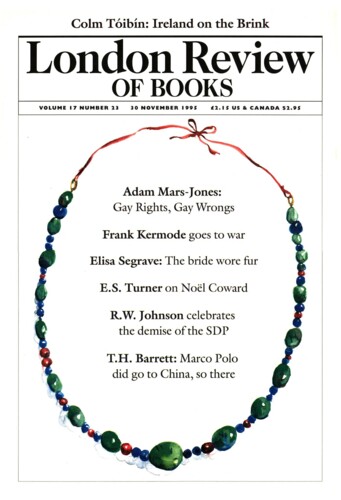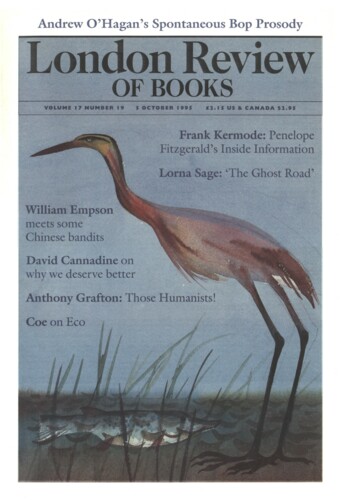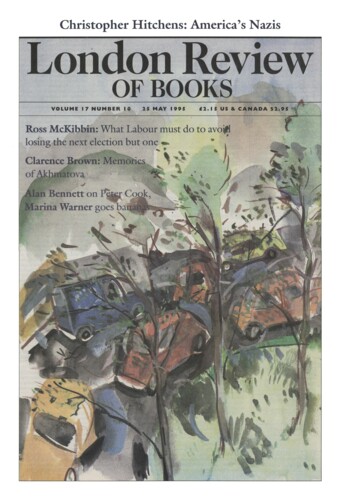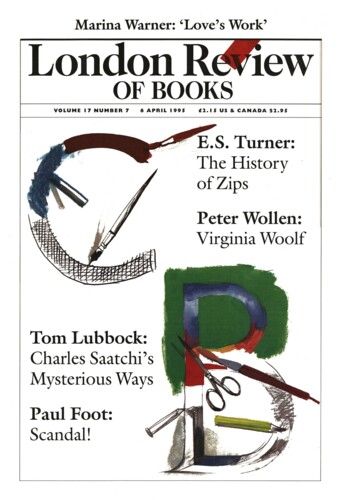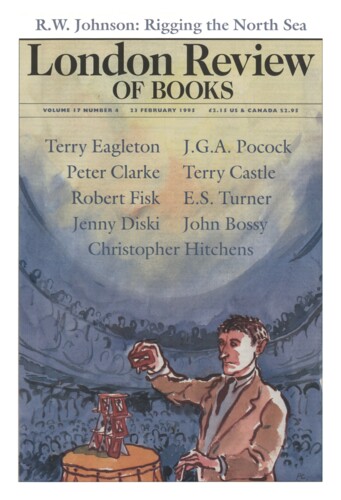Masculine, Assertive, Athletic and Elegant
E.S. Turner, 30 November 1995
A few yards back from the Bund, in Shanghai, is the Freedom Hotel, formerly the Cathay. It makes an undistinguished stopover, but has one claim to notice: it is where, in 1930, Noël Coward holed up, suffering from flu and, with only a pad of paper and an Eversharp pencil, wrote Private Lives in four days (having earlier conceived the plot during a restless night in Tokyo, when he was visited by a shimmering vision of Gertrude Lawrence). Four days to write a classic comedy was good going, but he had already written Hay Fever in three. In 1941, when hard up, he withdrew to the Italianate folly of Portmeirion in Wales (presumably festooned in barbed wire) and knocked out Blithe Spirit in seven days. Those were probably his three most popular plays (Blithe Spirit ran for four and a half years). Whatever the man was, he was a superb professional. The pity of it, or conceivably the charm, was that he was also a professional enfant terrible.
